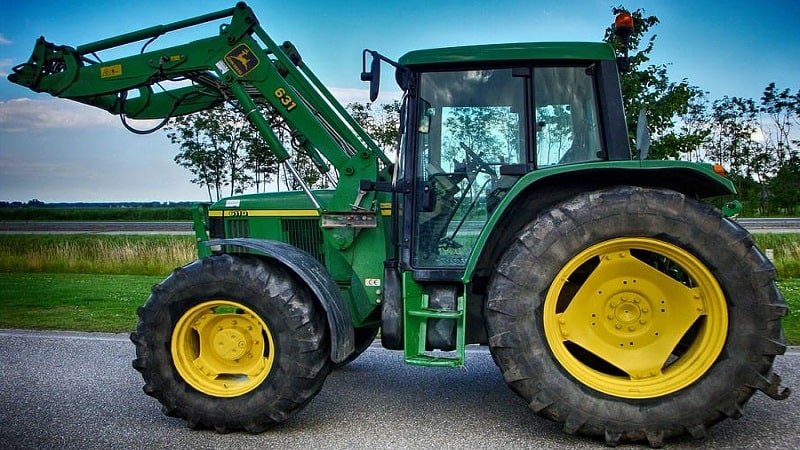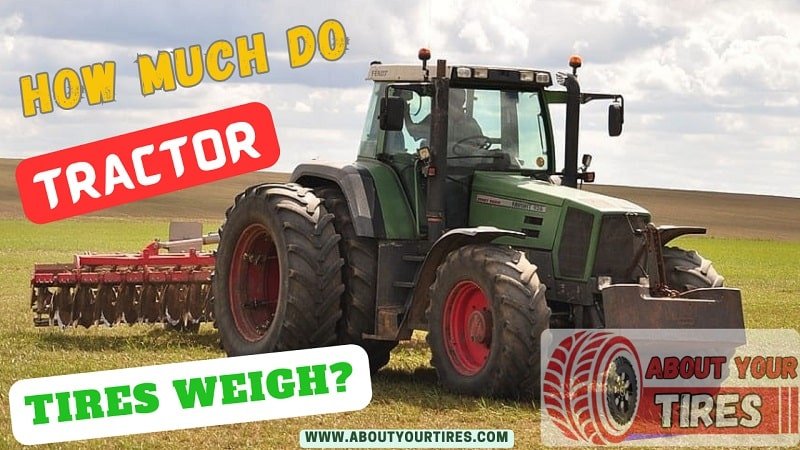Tractor tires, those mighty wheels that power the farm equipment we often see in rural landscapes, are an essential part of agriculture. You might be surprised to learn that these tires come in various sizes and weights, depending on their purpose and the equipment they’re meant for. In this article, we’ll delve into the world of tractor tires and will be able to get more information about How Much Do Tractor Tires Weigh?, by discussing their weight, variations, and a bit of humor along the way.
The Basic Anatomy of a Tractor Tire

To understand the weight of tractor tires, it’s essential to grasp their basic structure. Tractor tires, unlike car tires, come in two primary categories: bias-ply and radial. Radial tires have a more modern design, with cord plies running at 90 degrees to the tire’s direction of travel, while bias-ply tires have cords running at an angle.
Bias-Ply vs. Radial Tires
Bias-Ply Tires
In this comparison, Bias-ply tires are the older design and are constructed with layers of fabric (usually nylon or polyester) arranged at various angles. These tires tend to be heavier than their radial counterparts due to the additional layers and their older design. They are common on older tractors and still have a place in some agricultural applications.
Radial Tires
Radial tires are the newer, more efficient choice. They are constructed with cords running at 90-degree angles to the direction of travel, offering increased flexibility and a smoother ride. Radial tires tend to be lighter, making them a popular choice for many modern tractors and farming equipment.
Tractor Tire Sizes
The Bigger, the Heavier
Tractor tire sizes vary widely, depending on the type of tractor and its intended use. Larger tractors designed for heavy-duty agricultural work typically have massive tires, which naturally weigh more. Smaller tractors, often used for landscaping or hobby farming, have lighter and more compact tires.
Compact Tractor Tires
Compact tractors, often used for smaller tasks, have tires with an average weight of 150 to 250 pounds each. These tires are less bulky, making them more manageable for smaller tractors.
Large Agricultural Tractor Tires
Large agricultural tractors, designed for heavy-duty work like plowing or tilling, can have tires that weigh up to 1,000 pounds each or more. These tires are colossal, designed to handle significant loads and challenging terrain.
Calculating Tractor Tire Weight
Weight in Pounds
The weight of a tractor tire is primarily determined by its size, construction, and the type of tractor it’s meant for. As a rule of thumb, compact tractor tires generally weigh between 150 to 250 pounds each, while larger agricultural tractor tires can range from 500 to over 1,000 pounds per tire. That’s some serious heft!
Front and Rear Tires
Balancing Act
Tractors typically have different tire sizes for the front and rear wheels. Front tires are often smaller and lighter, as they are responsible for steering and don’t need to carry as much weight. Rear tires, on the other hand, are the workhorses, handling most of the tractor’s load and requiring greater weight-bearing capacity.
Tread Patterns and Weight
Tread and Weight Relationship
The tread pattern on a tractor tire can also influence its weight. Tires with more intricate and aggressive tread patterns tend to be heavier. These patterns are designed to provide better traction in challenging conditions, but the extra material adds to the tire’s weight.
Humor in Tractor Tires
When Tires Have ‘Heavy’ Conversations
Tractor tires are a bit like that friend who always seems to have something heavy on their mind, quite literally! They carry a weighty responsibility in the agricultural world, and their discussions often revolve around pounds, not politics.
Lighter Tires for the Win
Choosing the right tire for your tractor is a bit like picking out shoes – you want them to be the right size, comfortable, and not too heavy for your daily activities. Imagine a farmer trying to put on a pair of tires as hefty as a sumo wrestler’s boots every morning – it would make the morning chores a real workout!
Maintenance and Weight Considerations
Maintaining Maneuverability
One key consideration in tire weight is maneuverability. Heavier tires can provide better traction in some situations but might also limit a tractor’s agility. Depending on your needs, it’s essential to strike a balance between tire weight and ease of operation.
Conclusion
Tractor tires come in a range of sizes and weights, with the specific weight of a tire depending on its size, construction, and the type of tractor it’s designed for. Compact tractors typically have lighter tires, while larger agricultural tractors have substantial, heavyweight tires. The choice of tire is a critical decision for any farmer, impacting both performance and fuel efficiency. So, the next time you see a tractor working in the fields, you’ll have a better understanding of the weight these tires carry, both literally and figuratively.

